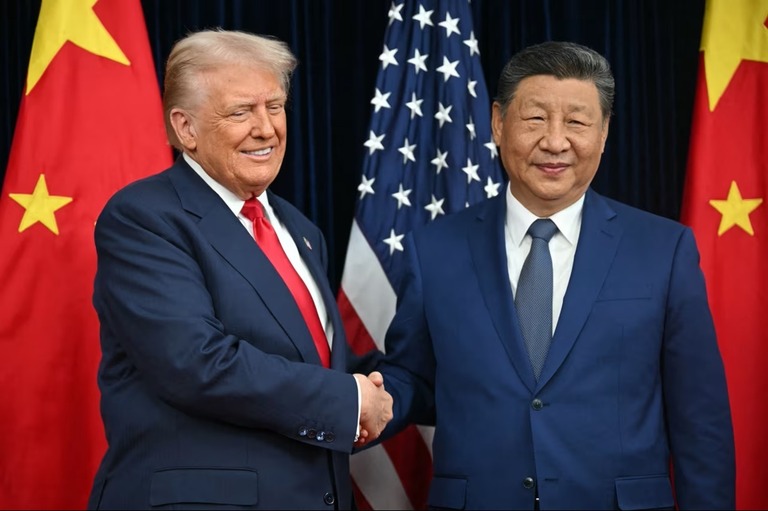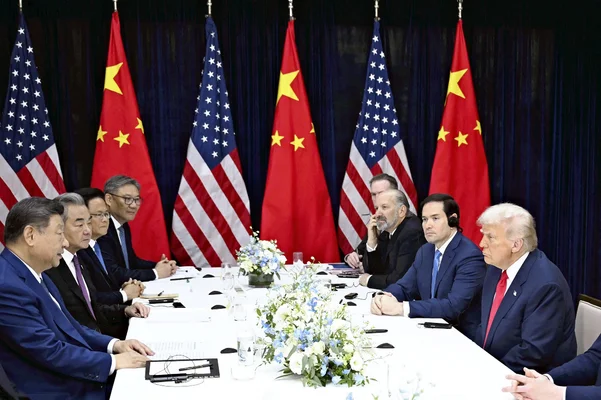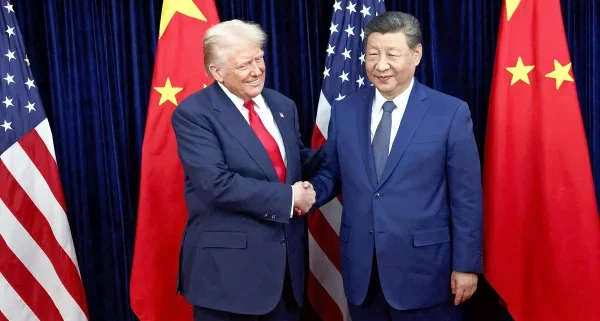Handshake that Restarted U.S.–China Relations

TEXT : Arnold Bittencort
During his Asia tour, U.S. President Donald Trump met Chinese President Xi Jinping at Gimhae Air Base in Busan, South Korea. The first face-to-face summit in Trump’s second administration marks an attempt to rebuild a “managed competition” between the world’s two largest powers, where confrontation and interdependence coexist.
On the military runway of Gimhae Air Base, surrounded by transport aircraft and flapping national flags, Trump and Xi shook hands once again. “Good to see you again. This meeting will be a great success. No doubt about it,” Trump declared.
Then he added with a hint of caution: “He’s a very tough negotiator. We know each other well .”The words reflected decades of rivalry and reluctant respect.

U.S.–China relations are no longer a choice between friendship or conflict.
A new reality has emerged : Managed competition.
Neither side can afford a total decoupling. The United States depends on Chinese components and rare earths. China depends on the U.S. market, the dollar system, and advanced technology. They compete fiercely yet remain economically intertwined.
The expected outcome of the summit is a framework to manage economic relations.
In other words : Setting rules to avoid a collision.
The location — a military air base — was intentional. Diplomacy with a strategic backdrop of power projection.

Trump negotiates by pressure and deal-making. Xi negotiates by patience and strategic silence. Different styles, same calculation : The other side is too big to ignore. The handshake was not about goodwill. It was about necessity.
The stability of global markets depends on how close — or distant — the two leaders stand. Move closer, friction rises. Move apart, markets panic. Both countries are burdened with domestic challenges : The U.S. with inflation and elections
China with unemployment and the real-estate crisis No one can afford confrontation.
The handshake lasted seconds, but the symbolism was immense. A brief gesture carrying enormous weight.
With one handshake, markets move. With one word, the world shakes. The summit did not solve anything. It merely restarted the relationship. The future of the world economy depends on what comes next.
